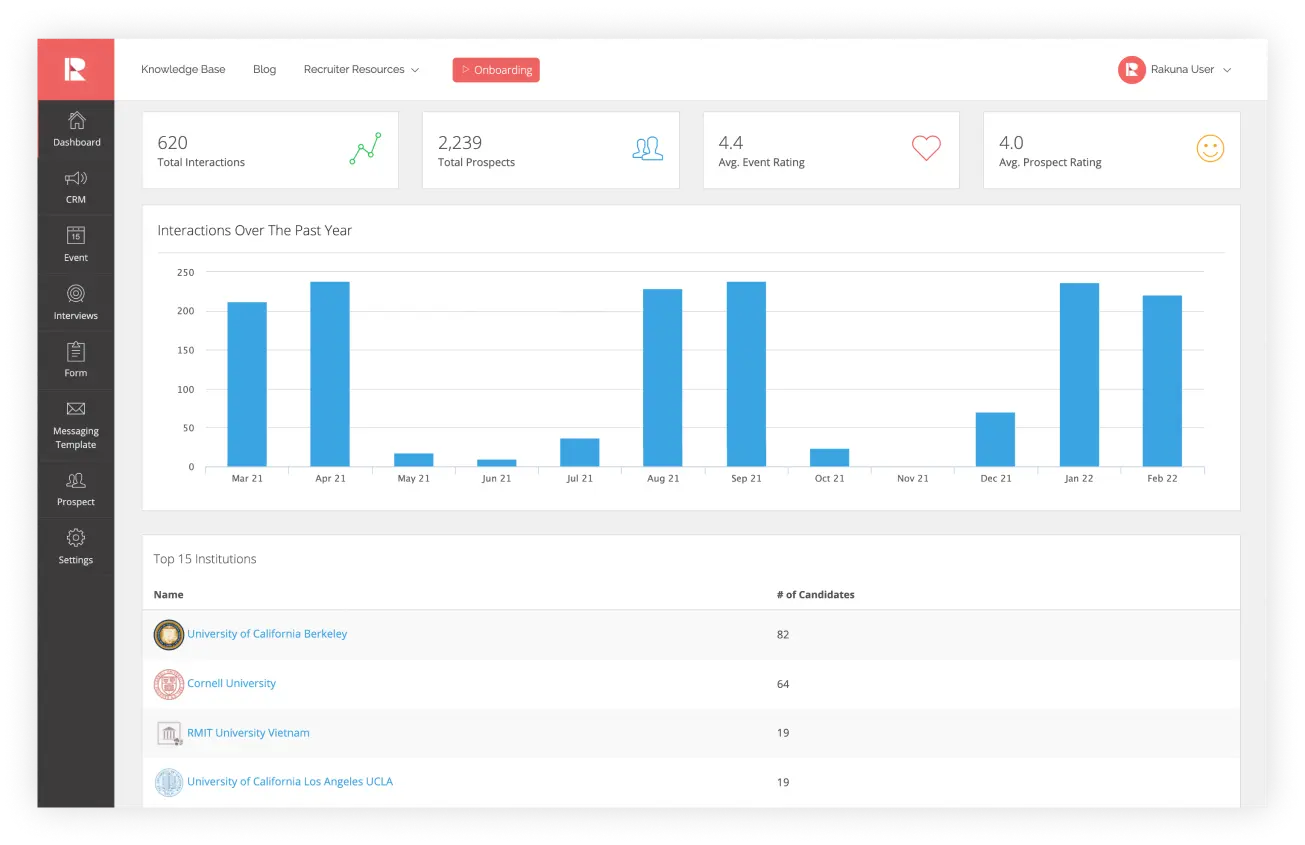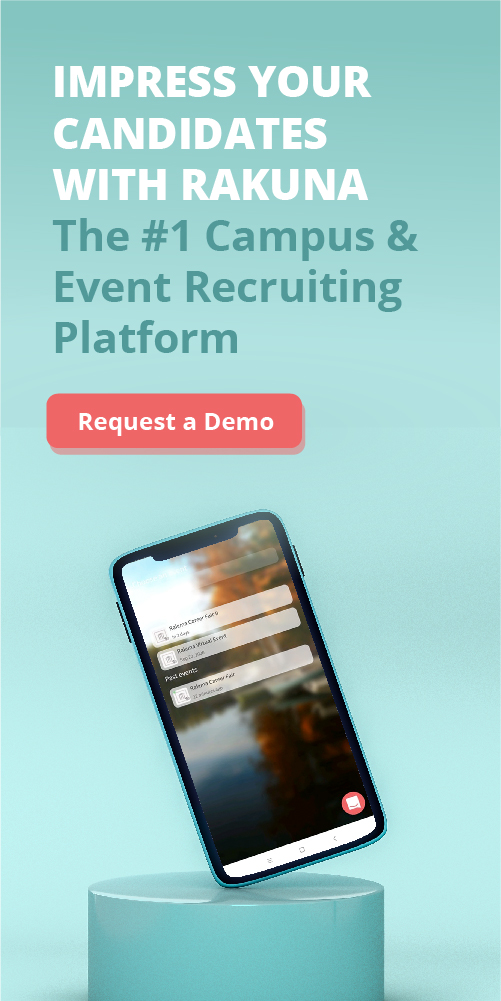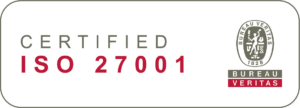Do you know that up to 70% of The US workforce comprises passive candidates? In this blog, we delve into diverse event ideas designed to attract candidates actively seeking new opportunities and those not actively job hunting. From hackathons to job shadowing, discover how these recruiting event ideas can elevate your talent acquisition strategy, engaging both active and passive candidates for a stronger, more dynamic workforce.

Recruiting Event Ideas: Host a Hackathon:
A hackathon is an intensive event where participants, often tech-savvy individuals, collaborate to solve problems or develop innovative solutions within a limited time frame, typically 24 hours. As a recruiting event, hackathons provide an excellent opportunity to engage with tech employees, assess their skills, and identify top talent. Participants work in teams, fostering collaboration and creativity while showcasing their technical abilities. Companies can present real-world challenges or projects relevant to their industry, giving participants a glimpse into the type of work they can expect in the organization.
Pros and Cons:
Pros:
- Engages tech-savvy individuals and assesses their problem-solving skills.
- Showcases the company’s culture, values, and technical challenges.
- Provides an opportunity to identify top talent through teamwork and collaboration.
Cons:
- Requires significant planning and resources to organize effectively.
- A limited time frame may not allow for in-depth evaluation of candidates.
- It may attract participants primarily interested in the competition rather than the company’s job opportunities.
Best Practices
- Define clear objectives and challenges relevant to your company’s needs.
- Promote the hackathon through tech communities, universities, and social media to attract a diverse pool of participants.
- Provide mentors or judges from your company to guide participants and evaluate their performance.
- Offer attractive prizes or incentives to motivate participants and enhance engagement.
- Capture feedback from participants to improve future hackathons and recruitment strategies.
- Use the hackathon as an opportunity to showcase your company’s culture and values.
- Follow up with top performers after the event to discuss potential job opportunities or internships.
- Collaborate with other companies or organizations to broaden the event’s reach and impact.
Further Reading: How To Develop A Career Fair Communication Strategy
Recruiting Event Ideas: Mentorship Programs at Universities:
Visiting universities where your employees study offers a unique opportunity to connect with students, foster mentorship programs, or organize one-time meetups. These events allow current students to interact with professionals who once attended their school, providing valuable insights, guidance, and networking opportunities.
Mentorship programs can involve ongoing support, advice, and even internships, helping students bridge the gap between academia and the workforce. One-time meetups offer a casual setting for students to engage with alumni, learn about career paths, and explore potential job opportunities within your company.
Pros and Cons:
Pros:
- Builds relationships with future talent and strengthens ties with alma maters.
- Provides students with valuable mentorship, advice, and networking opportunities.
- Offers a platform to showcase your company’s culture, values, and job opportunities.
Cons:
- Requires coordination with university administration and student organizations.
- Time-consuming to organize and may not yield immediate recruitment results.
- May encounter challenges in matching students’ interests with available mentorship opportunities.
Best Practices
- Partner with university career centers, alumni associations, or student clubs to organize events.
- Customize mentorship programs to meet the needs and interests of both mentors and mentees.
- Provide resources, training, and ongoing support for mentors to ensure a positive experience.
- Offer internships, co-op programs, or job shadowing opportunities to interested students.
- Promote events through university channels, social media, and alumni networks to maximize attendance.
- Encourage alumni to share their career experiences, challenges, and success stories with students.
- Create networking opportunities for students to interact with professionals from different departments.
- Follow up with participants after events to maintain relationships and explore potential recruitment opportunities.
Conduct Online Events:
Online events, such as webinars or virtual career fairs, have become increasingly popular for reaching remote candidates and expanding recruitment efforts beyond geographic limitations. Webinars provide a platform to showcase company culture, job opportunities, and industry insights, while virtual career fairs allow candidates to interact with recruiters, attend presentations, and submit resumes from anywhere with an internet connection. These events offer flexibility, convenience, and cost-effectiveness compared to traditional in-person events, making them ideal for engaging a diverse pool of talent.
Pros and Cons:
Pros:
- Overcomes geographic barriers and reaches a wider audience of remote candidates.
- Provides flexibility for candidates to attend from anywhere with an internet connection.
- Reduces costs associated with venue rental, travel, and logistics compared to in-person events.
Cons:
- Requires reliable technology and internet connectivity for seamless event execution.
- May lack the personal connection and networking opportunities of in-person events.
- Requires effective promotion and marketing to attract attendees and maximize engagement.
Best Practices
- Choose user-friendly webinar platforms with interactive features for engaging presentations.
- Promote online events through email campaigns, social media, and industry networks to attract participants.
- Provide clear instructions and technical support for accessing and participating in virtual events.
- Offer engaging content, such as industry trends, company culture videos, and Q&A sessions with recruiters.
- Incorporate interactive elements, like polls, quizzes, and breakout sessions, to enhance attendee engagement.
- Schedule events at convenient times to accommodate different time zones and work schedules.
- Follow up with attendees after the event to share additional resources, job opportunities, and next steps.
- Continuously evaluate and optimize online event strategies based on attendee feedback and engagement metrics.
Further Reading: Top 4 Virtual Event Platforms for Your Next Virtual Career Fair
Run Diversity Seminars:
Diversity seminars are educational events focused on promoting inclusion, equity, and diversity within the workplace. These seminars provide a platform to discuss important topics such as unconscious bias, cultural competence, and creating inclusive work environments.
As the host, companies can demonstrate their commitment to diversity and attract candidates who value inclusivity and equality. These events can feature guest speakers, panel discussions, interactive workshops, and networking opportunities to engage participants and foster meaningful dialogue.
Pros and Cons:
Pros:
- Demonstrates commitment to diversity and inclusion, attracting candidates who value these principles.
- Provides education and awareness on important topics related to diversity, equity, and inclusion.
- Creates opportunities for dialogue, networking, and collaboration among participants.
Cons:
- Requires sensitivity and expertise to navigate complex and sensitive topics effectively.
- May encounter resistance or skepticism from individuals who are resistant to diversity initiatives.
- Requires ongoing efforts beyond the seminar to create lasting cultural change and inclusivity.
Best Practices
- Partner with diversity and inclusion experts, organizations, or consultants to plan and facilitate seminars.
- Ensure diverse representation among speakers, panelists, and participants to promote inclusive perspectives.
- Create a safe and respectful environment for open dialogue, questions, and sharing of experiences.
- Provide resources, tools, and actionable strategies for fostering diversity and inclusion in the workplace.
- Incorporate interactive elements, such as case studies, role-playing exercises, and group discussions.
- Offer opportunities for networking, relationship-building, and community-building among participants.
- Promote diversity seminars through internal communications, external networks, and social media channels.
- Follow up with participants after the seminar to gather feedback, answer questions, and reinforce key messages.
Further Reading: 16 Tried-And-True Diversity Recruiting Strategies for Recruiters
Organize “Ask Me Anything” Sessions:
“Ask Me Anything” (AMA) sessions provide a platform for candidates to ask industry experts and professionals any questions they have about the company, industry trends, career paths, or specific job roles. These sessions foster open dialogue, transparency, and engagement between candidates and company representatives, allowing candidates to gain valuable insights and make informed decisions about their career aspirations. By hosting AMAs, companies demonstrate their commitment to candidate-centric recruitment practices and provide a personalized experience for potential hires.
Pros and Cons:
Pros:
- Allows candidates to directly engage with industry experts and professionals.
- Provides a platform for transparent communication and information-sharing.
- Builds trust, rapport, and authenticity between candidates and the company.
Cons:
- Requires coordination and scheduling to align the availability of experts and candidates.
- May encounter challenging or sensitive questions that require thoughtful responses.
- Requires active moderation to ensure a respectful and constructive environment.
Best Practices
- Invite a diverse panel of experts representing different departments, roles, and backgrounds.
- Promote the AMA session through social media, email newsletters, and industry forums to attract participants.
- Prepare a list of commonly asked questions to kickstart the discussion and encourage participation.
- Provide guidelines for respectful and constructive communication during the session.
- Encourage candidates to submit questions in advance to ensure a well-rounded discussion.
- Record the AMA session for candidates who are unable to attend live and share the recording afterward.
- Follow up with participants after the session to gather feedback and address any unanswered questions.
- Consider hosting regular AMA sessions to maintain engagement and communication with candidates.
Visit High Schools or Colleges:
Visiting high schools or colleges relevant to your hiring needs offers an opportunity to engage with students, introduce them to your company, and showcase potential career paths. These visits can involve career fairs, informational sessions, workshops, or networking events tailored to the interests and skills of students in attendance. By participating in these events, companies can identify potential talent early, establish relationships with educational institutions, and support students in their career exploration and development.
Pros and Cons:
Pros:
- Provides early access to potential talent and future workforce.
- Builds brand awareness and establishes relationships with educational institutions.
- Offers opportunities to educate and inspire students about career opportunities in your industry.
Cons:
- Requires coordination with school administrations and adherence to academic schedules.
- May encounter limited interest or engagement from students unfamiliar with your company or industry.
- Requires ongoing efforts to maintain relationships and follow up with interested students.
Best Practices
- Partner with career services offices, student organizations, or faculty members to organize events.
- Tailor event content and activities to match the interests, skills, and aspirations of students.
- Offer interactive workshops, hands-on activities, or company tours to engage students.
- Provide information about internships, co-op programs, or entry-level opportunities available at your company.
- Share success stories, career paths, and testimonials from employees who started their careers with your company.
- Collect contact information from interested students and follow up with personalized communications.
- Offer scholarships, mentorship programs, or other forms of support to students interested in your industry.
- Maintain a presence on campus through career fairs, guest lectures, or industry-specific events to sustain engagement.
Create Scholarship Funds:
Creating scholarship funds related to your hiring needs provides an opportunity to invest in future talent, support education initiatives, and attract talented students to your company. These scholarships can be tailored to specific fields of study, academic achievements, or diversity and inclusion initiatives, aligning with your company’s values and recruitment priorities. By offering scholarships, companies demonstrate their commitment to education, talent development, and community engagement while fostering goodwill and positive brand associations.
Pros and Cons:
Pros:
- Attracts talented students interested in your industry or field of study.
- Supports education initiatives and fosters positive community relationships.
- Enhances brand reputation and goodwill among students, educators, and the public.
Cons:
- Requires financial resources and long-term commitment to sustain scholarship programs.
- May encounter challenges in selecting recipients and evaluating scholarship applications.
- Requires ongoing communication and engagement with scholarship recipients and educational institutions.
Best Practices
- Define clear eligibility criteria, application requirements, and selection criteria for scholarship awards.
- Promote scholarship opportunities through educational institutions, scholarship databases, and social media.
- Collaborate with educational partners, industry associations, or community organizations to expand outreach.
- Consider offering renewable scholarships or internship opportunities to support recipients beyond financial aid.
- Establish a transparent and fair selection process, involving diverse stakeholders in the decision-making.
- Highlight scholarship recipients and their achievements through press releases, website features, and social media posts.
- Engage scholarship recipients through networking events, mentorship programs, or company visits.
- Evaluate the impact of scholarship programs and adjust strategies based on feedback and outcomes.
Host Weekend Retreats:
Hosting weekend retreats for students or recent graduates offers an immersive experience to learn about your company, industry, and career opportunities. These retreats can include orientation sessions, company presentations, hands-on workshops, team-building activities, and networking opportunities. By bringing participants together in a relaxed and informal setting, companies can foster connections, showcase their culture, and provide valuable insights into the day-to-day operations and career paths available within the organization.
Pros and Cons:
Pros:
- Provides an immersive experience to learn about the company and industry.
- Fosters connections, teamwork, and camaraderie among participants.
- Offers opportunities for hands-on learning, skill development, and networking.
Cons:
- Requires significant planning, resources, and coordination to organize weekend retreats.
- May encounter scheduling conflicts or limited availability for participants.
- Requires careful management of expectations and follow-up to maintain engagement after the retreat.
Best Practices
- Plan engaging and interactive activities that align with the interests and goals of participants.
- Provide opportunities for participants to interact with employees, leaders, and mentors from different departments.
- Offer informational sessions, workshops, or panels to educate participants about career opportunities and industry trends.
- Incorporate team-building exercises, outdoor activities, or social events to foster connections and rapport.
- Create a welcoming and inclusive environment that encourages participation and collaboration.
- Collect feedback from participants to assess the effectiveness of the retreat and identify areas for improvement.
- Follow up with participants after the retreat to reinforce key learnings, answer questions, and provide additional resources.
- Showcase testimonials, photos, and highlights from the retreat to promote future participation and engagement.
Participate in Relevant Conferences and Events
Participating in relevant conferences and events provides a platform to network, showcase your company, and engage with potential candidates. These events can range from industry conferences and trade shows to career fairs and networking mixers.
By actively participating in conferences and events related to your industry or target talent pool, you can raise brand awareness, establish thought leadership, and connect with top talent in your field. Whether through speaking opportunities, exhibitor booths, or networking sessions, these events offer valuable opportunities to promote your company and attract potential hires.
Pros and Cons
Pros:
- Provides exposure to a targeted audience of industry professionals, job seekers, and potential candidates.
- Offers opportunities to showcase company expertise, thought leadership, and innovative solutions.
- Facilitates networking, relationship-building, and engagement with potential hires.
Cons:
- Requires investment in event registration fees, booth rentals, travel expenses, and promotional materials.
- May encounter competition from other companies vying for the same talent pool or attention.
- Requires strategic planning, coordination, and follow-up to maximize ROI and impact.
Best Practices
- Research and identify conferences and events relevant to your industry, target audience, and recruitment goals.
- Consider speaking opportunities, panel discussions, or workshop presentations to demonstrate expertise and thought leadership.
- Create compelling booth designs, promotional materials, and interactive experiences to attract attendees.
- Leverage social media, email marketing, and networking platforms to promote your participation in upcoming events.
- Encourage team members to actively engage with attendees, network with industry peers, and collect contact information.
- Offer exclusive incentives, giveaways, or discounts to attendees who visit your booth or attend your sessions.
- Follow up with leads, contacts, and connections made during the event to nurture relationships and potential hires.
- Evaluate the success and impact of your participation in conferences and events to inform future recruitment strategies.
Further Reading: How Can You Craft a Successful Campus Recruiting Strategy?
Provide Coaching Sessions:
Providing coaching sessions for career development and skill enhancement offers personalized guidance, support, and mentorship to candidates seeking professional growth. These sessions can cover a range of topics such as resume writing, interview preparation, career planning, and skill development.
By offering one-on-one or group coaching sessions, companies demonstrate their commitment to employee development, talent retention, and career advancement. Whether through internal mentors, external coaches, or industry experts, coaching sessions provide valuable resources and insights to empower candidates in their career journey.
Pros and Cons
Pros:
- Offers personalized guidance, support, and mentorship to candidates seeking career development.
- Provides opportunities for skill enhancement, professional growth, and advancement within the organization.
- Builds trust, rapport, and loyalty with candidates, leading to stronger engagement and potential hires.
Cons:
- Requires investment in coaching resources, time commitments, and scheduling logistics.
- May encounter challenges in aligning coaching sessions with candidates’ availability and needs.
- Requires ongoing support, feedback, and follow-up to ensure effectiveness and impact.
Best Practices
- Identify coaching topics, areas of expertise, and resources aligned with candidates’ career goals and aspirations.
- Offer a mix of one-on-one coaching sessions, group workshops, and online resources to accommodate different learning preferences.
- Recruit internal mentors, subject matter experts, or industry professionals to serve as coaches and advisors.
- Establish clear objectives, expectations, and outcomes for coaching sessions to maximize impact and effectiveness.
- Provide resources, tools, and templates to support candidates in resume writing, interview preparation, and career planning.
- Encourage candidates to set SMART goals (Specific, Measurable, Achievable, Relevant, Time-bound) and track progress over time.
- Offer regular check-ins, progress reviews, and feedback sessions to assess performance and address any challenges or concerns.
- Measure the success and impact of coaching sessions through feedback surveys, performance metrics, and candidate testimonials.
Lead Lectures or Seminars
Leading lectures or seminars about your industry’s current value and future direction offers an opportunity to share knowledge, insights, and trends with potential candidates. These sessions can cover a wide range of topics such as market trends, emerging technologies, industry challenges, and career opportunities.
By serving as a thought leader and expert in your field, you can position your company as an attractive employer, showcase your industry expertise, and engage with potential hires in a meaningful way. Whether through guest lectures, industry panels, or virtual webinars, these sessions provide valuable learning experiences and networking opportunities for candidates.
Pros and Cons:
Pros:
- Positions your company as a thought leader and expert in your industry or field.
- Provides opportunities to share knowledge, insights, and trends with potential candidates.
- Engages candidates in meaningful discussions, networking, and relationship-building.
Cons:
- Requires investment in content development, presentation skills, and event logistics.
- May encounter challenges in attracting and retaining participants in a competitive market.
- Requires ongoing efforts to stay current with industry trends, developments, and best practices.
Best Practices
- Identify relevant topics, themes, and trends aligned with candidates’ interests and career aspirations.
- Leverage internal subject matter experts, thought leaders, and industry influencers as speakers and presenters.
- Offer a mix of in-person, virtual, and on-demand sessions to accommodate different learning preferences and schedules.
- Promote sessions through targeted marketing, social media, and industry networks to attract participants.
- Provide interactive elements, Q&A sessions, and networking opportunities to engage participants and foster dialogue.
- Collect feedback from participants to assess session effectiveness, relevance, and engagement.
- Share session recordings, slides, and resources with participants for ongoing learning and reference.
- Explore partnerships, collaborations, or sponsorships with industry associations, educational institutions, or professional organizations to expand reach and impact.
Organize Contests with Practice Cases:
Organizing contests with practice cases provides candidates with an opportunity to showcase their problem-solving abilities in a simulated work environment. These contests typically involve presenting candidates with real-world scenarios or challenges relevant to the role or industry. Candidates are then tasked with analyzing the case, identifying key issues, and proposing solutions or recommendations.
By participating in these contests, candidates demonstrate their critical thinking skills, creativity, and ability to handle complex problems. Employers can assess candidates’ analytical abilities, communication skills, and decision-making processes, helping to identify top talent for their organization.
Pros and Cons:
Pros:
- Allows candidates to demonstrate their problem-solving abilities and analytical skills in a realistic context.
- Provides employers with insights into candidates’ thought processes, decision-making, and creativity.
- Engages candidates in a challenging and interactive experience, enhancing their interest and investment in the recruitment process.
Cons:
- Requires careful design and planning of case studies or scenarios to ensure relevance and fairness.
- May encounter challenges in evaluating and comparing candidates’ performance objectively.
- Requires clear communication of expectations, guidelines, and evaluation criteria to participants.
Best Practices
- Develop case studies or scenarios that reflect real-world challenges or situations relevant to the role or industry.
- Clearly communicate the objectives, expectations, and evaluation criteria for the contest to participants.
- Provide resources, data, and information necessary for candidates to analyze the case effectively.
- Offer opportunities for candidates to ask questions, seek clarification, and interact with organizers.
- Set realistic timeframes and deadlines for completing the case study to simulate real-world constraints.
- Consider incorporating a mix of individual and team-based challenges to assess collaboration and teamwork skills.
- Establish a fair and transparent evaluation process, involving multiple assessors or judges if possible.
- Provide feedback and debrief sessions for participants to discuss their performance, strengths, and areas for improvement.
Invite Candidates to Company Events:
Inviting candidates to company events such as happy hours or team-building activities offers a relaxed and informal setting for interaction and networking. These events provide candidates with an opportunity to engage with current employees, learn about company culture, and experience the workplace environment firsthand.
By attending these events, candidates can get a sense of the company’s values, dynamics, and team spirit, helping them determine if it’s a good fit for them professionally and culturally. Additionally, these events allow employers to showcase their organization in a positive light, foster connections with potential hires, and strengthen their employer brand.
Pros and Cons:
Pros:
- Creates a relaxed and informal atmosphere for candidates to interact with current employees and experience company culture.
- Provides opportunities for networking, relationship-building, and rapport with potential hires.
- Showcases the company’s values, dynamics, and team spirit in a positive and engaging way.
Cons:
- Requires careful planning and coordination of event logistics, including venue selection, catering, and scheduling.
- May encounter challenges in managing expectations and ensuring all candidates have equal opportunities to engage.
- Requires active participation and engagement from current employees to make candidates feel welcome and included.
Best Practices
- Choose event formats and activities that reflect company culture and values, such as team-building games or social outings.
- Select venues that are convenient, comfortable, and conducive to networking and interaction.
- Encourage current employees to actively engage with candidates, share their experiences, and answer questions.
- Provide opportunities for candidates to mingle, network, and connect with employees from different departments or levels.
- Offer guided tours or introductions to key areas of the workplace, such as offices, meeting rooms, or common areas.
- Incorporate elements of fun and entertainment to make the event memorable and enjoyable for participants.
- Collect feedback from candidates to assess their experience and satisfaction with the event.
- Follow up with candidates after the event to continue the conversation, express appreciation, and nurture relationships.
Organize Panel Discussions with Company Leaders:
Organizing panel discussions with company leaders offers candidates insights into the organization’s vision, values, and strategic direction. These discussions typically feature a panel of senior executives, managers, or subject matter experts sharing their perspectives, experiences, and advice on various topics related to the company and industry.
By participating in these discussions, candidates can gain valuable knowledge, ask questions, and learn about career opportunities within the organization. Employers can showcase their leadership team, highlight their company culture, and engage with potential hires in a meaningful and informative way.
Pros and Cons:
Pros:
- Provides candidates with insights into the organization’s leadership, culture, and strategic priorities.
- Offers opportunities for candidates to ask questions, seek advice, and learn about career advancement opportunities.
- Showcases the expertise, experience, and thought leadership of company leaders, enhancing the organization’s credibility and reputation.
Cons:
- Requires coordination and scheduling of panelists, topics, and logistics for the discussion.
- May encounter challenges in managing time, maintaining audience engagement, and addressing diverse interests and questions.
- Requires effective moderation and facilitation to ensure a productive and informative discussion.
Best Practices
- Identify relevant topics, themes, and issues for the panel discussion based on candidates’ interests and concerns.
- Invite a diverse panel of speakers representing different departments, levels, and perspectives within the organization.
- Promote the panel discussion through targeted marketing, social media, and industry networks to attract participants.
- Prepare panelists with key talking points, anecdotes, and examples to illustrate their points effectively.
- Encourage audience participation by soliciting questions, feedback, and insights from candidates before, during, and after the discussion.
- Set clear objectives, expectations, and guidelines for the panel discussion to ensure a focused and productive conversation.
- Provide opportunities for candidates to network, mingle, and connect with panelists and other attendees.
- Follow up with candidates after the panel discussion to share additional resources, answer lingering questions, and nurture relationships.
About Rakuna Event & Campus Recruiting Solution

Whether it is in-person or virtual recruiting events, we always have your back covered. Streamline your event recruiting operations seamlessly on one single platform.
With Rakuna’s Event & Campus Recruiting Solution, you can:
- Impress your candidates with paperless technology at recruiting events. Let Rakuna’s Mobile Recruiting App handle the data collection while your team converse and forge authentic connections, taking full advantage of face-to-face interactions.
- Leverage the Rakuna dashboard to plan, track, and promote all recruiting events, review candidates’ data and recruiters’ evaluations, collaborate with hiring managers, and automate communication with candidates pre and post-events.
- Have a complete view of all existing events’ results, whether in-person, virtual, or hybrid, to analyze past performance and allocate resources accordingly. Focus on delivering results rather than busy the mind with administrative burdens.
Want to see Rakuna in action? Book a FREE demo with us!


